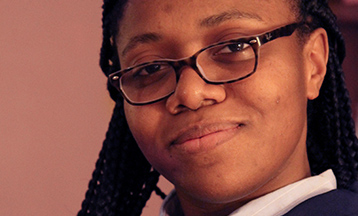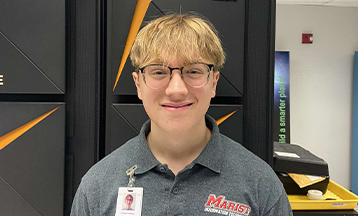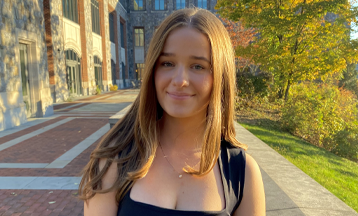-
About
Marist Commencement
Celebrating the Class of 2025
• The graduate ceremony will be held on Friday, May 23.
• The undergraduate ceremony will be held on Saturday, May 24.About
-
Academics
Marist Commencement
Celebrating the Class of 2025
• The graduate ceremony will be held on Friday, May 23.
• The undergraduate ceremony will be held on Saturday, May 24.Academics
-
Admission & Financial Aid
Marist Commencement
Celebrating the Class of 2025
• The graduate ceremony will be held on Friday, May 23.
• The undergraduate ceremony will be held on Saturday, May 24.Admission & Financial Aid
-
Student Life
Marist Commencement
Celebrating the Class of 2025
• The graduate ceremony will be held on Friday, May 23.
• The undergraduate ceremony will be held on Saturday, May 24.Student Life
- Athletics
Image of Justin Svegliato

Justin Svegliato
Massapequa Park, NYAcademic School
Computer Science and Math, Liberal ArtsCampus
New YorkAs a busy, high-achieving undergraduate at Marist, Class of 2014 valedictorian Justin Svegliato was a dual major in computer science and philosophy with a minor in mathematics. Such varied interests could have led him in a number of divergent directions. Though he felt a pull toward academia, he found himself face-to-face with a great opportunity while still in school.
During his sophomore and junior years, Svegliato developed software as an intern at Goldman Sachs. That led to an enviable part-time consulting job while he was still in school and a job offer upon graduation. The offer was too good to pass up (“I was still very interested in academia, but wanted to give industry a shot,” he said), so Svegliato spent two years at the storied Wall Street firm. “Although it was professionally challenging, it didn’t sway me from my original plans,” he said. “I still wanted to be a professor.”
He researched various graduate programs and was particularly intrigued by Dr. Shlomo Zilberstein’s work in artificial intelligence at UMass Amherst. Today, Svegliato is a PhD candidate in Resource-Bounded Reasoning Lab, which is focused on how intelligent systems like robots and self-driving cars make decisions. Currently, Svegliato’s academic research is on metareasoning or, as he puts it, “reasoning about reasoning.”
The lab is tackling big questions, Svegliato noted. “When should a robot stop thinking and start making an actual decision? We’re developing techniques and models for that.”
Svegliato is also working on self-driving cars with Nissan. “We develop models and algorithms that help self-driving cars make decisions,” he explained. He noted the many decisions a self-driving car needs to make, including when to yield at intersections, when to stop for pedestrians, how to manage obstacles, and when to change lanes. As self-driving cars become more common, this research is extremely timely.
The work is a dream situation for Svegliato because it brings together his interests in computer science and philosophy in a unique way. “I’m like a kid in a candy shop,” he admitted.
What’s up next after he earns his PhD? Although Svegliato would like to start his own AI and robotics company, he remains drawn to academia. “I have a feeling I’ll be a professor,” said Svegliato, who spoke fondly of Marist professors Alan Labouseur and James Snyder. “If I could be anything like James or Alan, that would be awesome,” he said. “It would be fulfilling to help students learn, grow as researchers, and develop their careers.”



